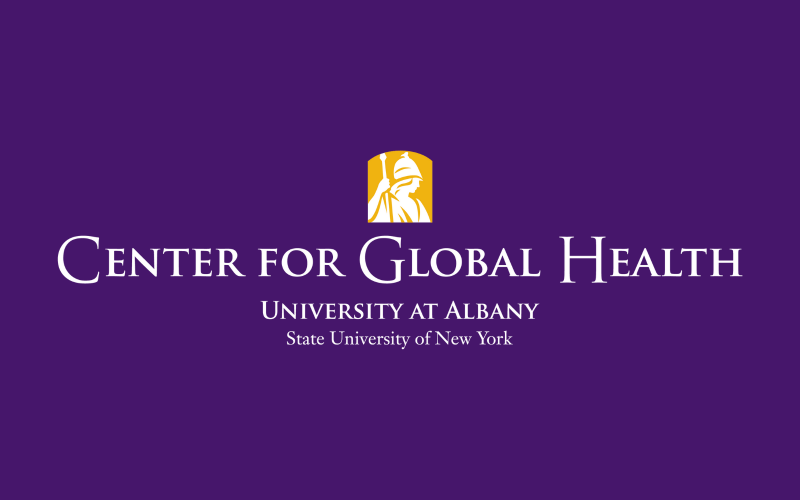Center for Global Health Collaborates with Colombian Partner University to Deliver Remote Course on Global Health

Dr. Alvaro Carrascal, an affiliated faculty member at the UAlbany Center for Global Health, and Professor Jeancarlo Cordoba, a faculty member at the University of Costa Rica School of Public Health and a current DrPH student at UAlbany, recently collaborated with colleagues at the Pontificia Universidad Javeriana in Cali, Colombia to deliver an eight-hour synchronous online short-course on global health for Master of Public Health (MPH) students taking an international health class with a focus on COVID-19 pandemic and the UN Sustainable Development Goals.
The planning for this collaborative online learning activity began following the success of a joint webinar organized by the UAlbany Center for Global Health together with the Pontificia Universidad Javeriana in Cali, the Pontificia Universidad Católica Madre y Maestra, Dominican Republic, and the Universidad de Costa Rica, Costa Rica, in January 2021. This webinar, entitled “Field Research on Human Papillomavirus (HPV),” shared findings from recent research conducted in Costa Rica on the HPV vaccine and attracted more than 200 registrants from across Latin America. During follow-on discussions after the webinar, colleagues from the Pontificia Universidad Javeriana in Cali invited the UAlbany School of Public Health and its Center for Global Health, under the leadership of Dr. Carrascal and Cordoba, to develop and deliver a more in-depth distance learning activity as part of its 2021 International Public Health Week activities.
This short course covering key topics in global health, consisting of two four-hour synchronous participatory lectures delivered over Zoom, created a flexible opportunity for busy MPH students working and studying in locations across Colombia to participate. The design and delivery modalities of this course aligned well with the needs of the participants, as most graduate students in Colombia are full-time working professionals pursuing their graduate degree to advance their careers.
“The participating students were enthused by the material covered in the course,” says Cordoba. “Nearly all of the students were active and engaged in the lectures, and we had great in-class discussions, even though we thought it might be difficult to have such engagement online.”

When asked about their biggest “takeaways” from this experience, both Dr. Carrascal and Cordoba highlighted the tremendous potential to use technology to engage with partners in collaborative online international learning.
“The pandemic has put technology in the forefront, and I think we need to take advantage of these opportunities to maximize the use of tech to promote scientific and academic exchanges like this” says Dr. Carrascal.
Cordoba also enjoyed having the chance to teach once again in Spanish, his native language, and to work with students from Latin America. For Dr. Carrascal, originally from Colombia, this remote teaching opportunity held special significance. “Being able to engage with and help train a new generation of public health and medical professionals studying in my home country was incredibly rewarding for me, and to be able to engage in this way in the midst of the current pandemic was especially gratifying,” he says.
Dr. Carrascal and Cordoba came away from this virtual exchange and teaching collaboration with a renewed belief in the value of and need for ongoing international exchanges involving students and faculty.
“It is more important than ever to work together to expand our knowledge of global health through different tools and resources, through different international partnerships,” says Cordoba. “By valuing and leveraging these relationships, we are able to maximize the knowledge and flow of global health information between universities all over the world.”
Dr. Carrascal adds “the current pandemic makes it clearer than ever that our faculty and students need to remain globally engaged and that we must work collaboratively with our fellow scientists, our colleagues and our peers from around the world to solve today’s most important challenges, and that advances in technology can help us to do this effectively and efficiently. There is no time to waste.”


